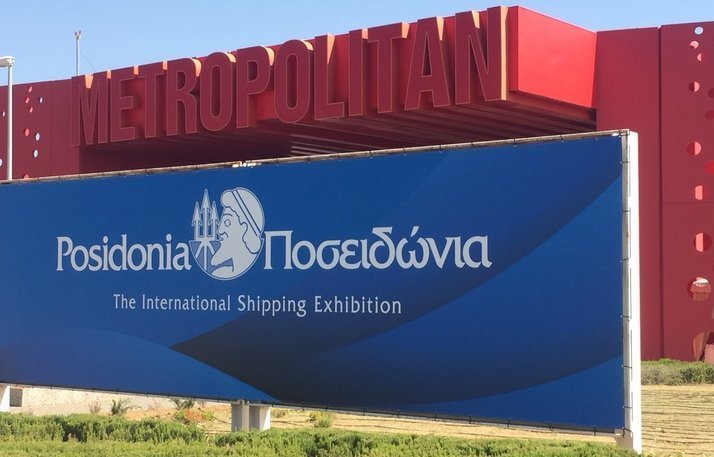Scrubbers take more flak at Posidonia

Politics, scrubbers, scrapping and consolidation were themes that dominated yesterday’s shortened TradeWinds Shipowners Forum, held just in front of the Splash sponsored press office at Posidonia. The event, which featured a host of top shipowner names, was unfortunately marred by a power cut, but before the lights went out there were a number of juicy remarks from panellists at the packed conference.
Dry bulk was under the spotlight first with speakers confident the next couple of years had good fundamentals.
“Demand is very strong, the orderbook very small so all the fundamentals are very positive,” Milena Pappas, commercial director of Star Bulk Carriers stated.
Bimco’s president Anastasios Papagiannopuolos added that rates for smaller ships are steady and panamax bulk carriers are outperforming, but he said it was still difficult to predict where rates were heading.
“I’m pretty worried about the protectionism trends around the world so looking to the future is a grey area even if the fundamentals are good for dry bulk shipping,” the Bimco boss stated.
Alexander Saverys, CEO of CMB and Hunter Maritime, quipped: “Every tweet from Donald Trump creates uncertainty and uncertainty is not good for our business.”
New regulations on low sulphur emission coming into force in 2020 was also another key topic put on the table for discussion and most of the panellists said that scrubbers are not the right solution for protecting environment, an increasingly common stance adopted by owners across many Posidonia-related events this week.
“With the scrubbers we just transfer pollution from the air to the sea. They are not positive for the market,” Saverys said.
“With scrubbers we are not exactly helping the market,” Ismini Panayotides, CEO and founder of Pavimar Shipping agreed.
The solution for all is simple, claimed John Michael Radziwill, CEO of GoodBulk: “We should just slow down vessels’ speed. Slow steaming will also reduce capacity on the market and we can make more money,” he pointed out. Owners calling for slow steaming en masse to combat – and profit from – the sulphur cap has been another recurring theme at Posidonia this year.
Consolidation in dry bulk was also discussed at the conference by Milena Pappas and others.
“To manage a bigger company makes it possible for you to obtain bigger economies of scales, more power with the suppliers,” she said, while also admitting it can be hard to reach a critical mass. Another benefit for Star Bulk, now the world’s largest listed dry bulk owner, was the access for finance thus better conditions from the lenders.
All of the panellists shared the vision that a level of consolidation like what is happening in the container industry is not possible in the dry bulk segment.
The other two issues discussed before an electricity blackout happened at the venue just when the industry was talking about modernisation were corporate governance and social responsibility in scrapping.
As for the latter, Bimco’s president Anastasios Papagiannopuolos asked for a financial scheme and some sort of public incentives for owners to opt for green recycling while, talking about, governance, everyone agreed that some changes will be necessary for many shipping firms.
Later in the tanker session the lack of liquidity on the FFA markets was a central theme.
“We need a liquid FFA market for tankers as it is in the dry bulk to complete the tanker cycle,” claimed Nikolas Tsakos, CEO of Tsakos Energy Navigation.
Panellists also included Euronac’s Paddy Rodgers and Navios’s Angeliki Frangou, all of whom agreed further consolidation in the sector was on the cards.
“Consolidation is a driver in this market,” Frangou said.
